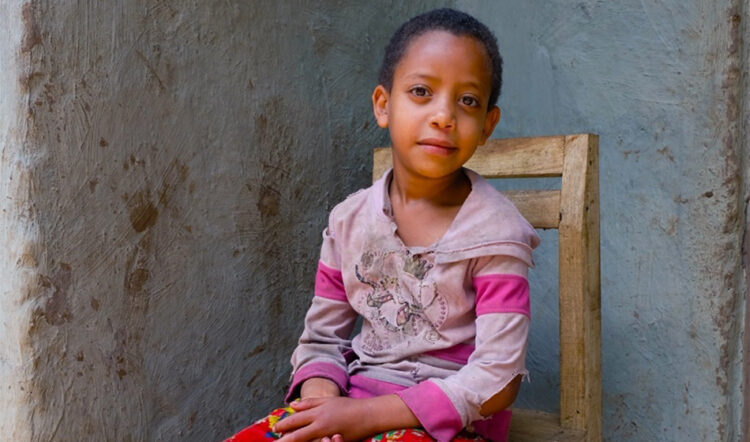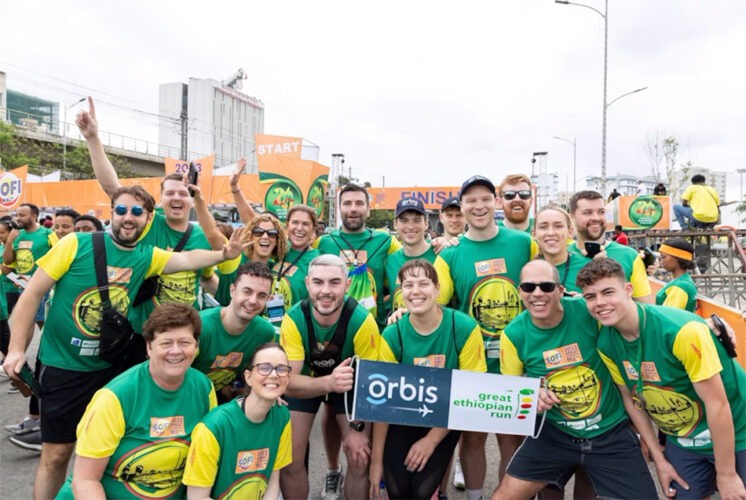Run in one of the world’s most iconic 10km road races at altitude in east Africa with the charity Orbis UK
Join Orbis UK for a trip of a lifetime to the Great Ethiopian Run in November. The 10km event is Africa’s biggest road race with more than 45,000 participants and winners over the years such as Haile Gebrselassie, Tirunesh Dibaba and Yalemzerf Yehualaw.
As part of the Orbis team, the charity will handle your travel, accommodation, food and race entry. The eye care charity will also guide you every step of the way as you experience life in this fascinating country with traditional dining, entertainment and excursions included.
By joining Orbis at the 2024 Great Ethiopian Run, you’ll be helping to save sight too. You will witness Orbis at work in the local community and visit a local school and water station to see how Orbis is making real change in the region.
Meskerem, a seven-year-old girl who lives in a village in Ethiopia with her parents, grandmother and three younger brothers, is one of the people you will be able to help.
She should be enjoying her time at school right now but because she suffers from an active trachoma, a painful and highly contagious eye disease, the sunlight hurts her eyes, making it difficult to read or write.
Symptoms include itching, irritation, discharge, swelling, light sensitivity and redness. Without treatment, trachoma can lead to irreversible blindness.
Meskerem is not alone either. More than nine million children aged one to nine in Ethiopia live with active trachoma. However, with the provision of antibiotics during twice-yearly mass drug administrations in her village and education on good hygiene practices, trachoma can be prevented.
Her mother, Alemitu, says: “Meskerem has discharge from her eyes and hides from the sunlight. Trachoma stops her from playing with her brothers and makes school difficult for her. It’s a painful condition.”

Normally playful and energetic, Meskerem becomes withdrawn when her trachoma infection flares up. Her village, with 10-15 homes close together, relies on farming and pottery work. Without electricity and with limited latrine facilities, the nearest clean water is an hour’s walk away.
In 2017, the local trachoma prevalence rate was as high as 30%. Thanks to the sustained efforts of Orbis and partners, this rate has fallen to 9% in the most recent survey. Key to this progress are the mass drug administrations and house-to-house screenings by Orbis-trained…
CLICK HERE to Read the Full Original Article at AW…

